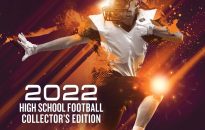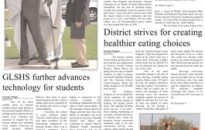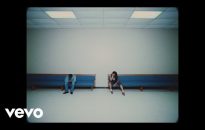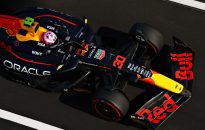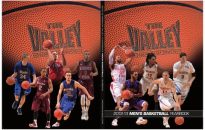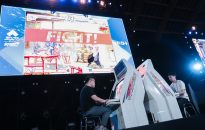However the Amateur Sports Act, as amended in 2018 and 2020, does not eliminate the court’s subject matter jurisdiction over plaintiffs’ claims against SafeSport and USEF. Counts One and Two raise separation-of-powers challenges to SafeSport’s structure and authority. Because SafeSport’s underlying policies and procedures do not have the force or effect of federal law, Congress […]


However the Amateur Sports Act, as amended in 2018 and 2020, does not eliminate the court’s subject matter jurisdiction over plaintiffs’ claims against SafeSport and USEF.
Counts One and Two raise separation-of-powers challenges to SafeSport’s structure and authority. Because SafeSport’s underlying policies and procedures do not have the force or effect of federal law, Congress has not violated the nondelegation doctrine by codifying some of SafeSport’s functions and responsibilities. And the appointment of SafeSport’s board of directors does not violate the Appointments Clause.
By contrast, the complaint and other documents properly considered at the motion-to-dismiss stage do not clearly show that res judicata bars Giorgio and Navarro’s other claims. The court cannot conclude that Giorgio and Navarro had such an opportunity to litigate their remaining claims during the arbitrations.
Background
Counts Five and Six allege violations of the Fifth Amendment Due Process Clause. Plaintiffs concede that USOPC and USEF are not governmental actors. And the court concludes there is no basis for treating SafeSport as an arm of the federal government.
State claims
Counts Three and Four allege that SafeSport’s adjudication procedures violate 36 U.S.C. § 220522(8). Defendants argue that the Amateur Sports Act does not provide a private right of action to sue for violations of the statute. The court agrees.
Plaintiffs do allege that USOPC failed to ensure compliance with the statutory requirement that National Governing Bodies, or NGBs, provide “fair notice and opportunity for a hearing . . . before declaring [a member] ineligible to participate.” They claim that USOPC “directed [NGBs] not to fulfill those requirements, and or [sic] assisted them in avoiding them” by deliberately omitting a pre-determination hearing from the original SafeSport Code.Res judicata
The undisputed record shows that Navarro raised one of his claims during his arbitration. The arbitrator’s written decision considered that argument and rejected it on the ground that SafeSport is not a governmental actor subject to due process requirements. Thus, Navarro’s due process claim against SafeSport is barred by res judicata.
Thomas Navarro, James Giorgio and Nina Shaffer were suspended or permanently banned from participating in United States Equestrian Federation Inc., or USEF, events based on eligibility decisions issued by the United States Center for SafeSport. Plaintiffs brought this lawsuit against SafeSport, USEF and the United States Olympic & Paralympic Committee, or USOPC, to challenge the procedures SafeSport applied in their cases. Defendants have filed motion to dismiss.USEF and SafeSport argue that Navarro and Giorgio’s claims are barred by res judicata because they raised (or could have raised) the claims during arbitration and did not seek judicial review of the arbitration decisions under the Federal Arbitration Act
Federal claims
Where three people challenged their suspension or permanent ban from United States Equestrian Federation events, but their federal claims failed for a variety of reasons, the suit was dismissed.
Here, Shaffer failed to exhaust her administrative remedies by never requesting that an arbitrator review SafeSport’s suspension decision. Accordingly, the court will dismiss Shaffer’s remaining claims under Rule 12(b)(6).
Plaintiffs do not dispute that the Act imposes some exhaustion requirement.
Because the court will dismiss all federal claims in this action, it will exercise its discretion and decline supplemental jurisdiction over Count Seven, which alleges that plaintiffs’ membership agreements with USEF were unconscionable adhesion contracts.
USOPC argues that plaintiffs lack Article III standing to sue USOPC. The court agrees. Plaintiffs have not alleged any injuries that are fairly traceable to USOPC. They do not allege that USOPC played any role in issuing the eligibility decisions or imposing the sanctions in their cases. Further, they recognize that the 2018 Amendment to the Amateur Sports Act “made Defendant SafeSport independent from Defendant USOPC.” Plaintiffs all were sanctioned after that amendment went into effect.
Navarro v. United States Center for SafeSport, Case No. 3:24-cv-00030, Jan. 15, 2025. WDVA at Charlottesville (Yoon). VLW 025-3-013. 37 pp.
Exhaustion
Defendants’ motions to dismiss granted.
Jurisdiction
But USOPC’s role in drafting the original SafeSport Code is too attenuated from plaintiffs’ injuries to support an inference of causation. Any authority USOPC exercised over SafeSport’s operations ended with the 2018 Amendment, which made SafeSport a formal independent entity separate and apart from USOPC.









